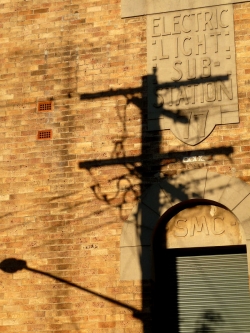
PIAC’s first case focussed on electricity costs and
retrospective charges.
In August 1982, the Sydney County Council and other supply
councils announced a hefty increase in electricity charges.
The new charges
were to apply retrospectively to the whole of the electricity used by a
consumer since their last meter-reading. The councils said they had no choice
because the State Government who supplied electricity to them had only given
two days notice of increases in supply charges.
With rare determination, Arthur Austin, a retired
electrician, managed to get himself before a Supreme Court judge without any legal
assistance and put his complaint about the charges.
The ensuing skirmish with the Sydney County Council and then
NSW Premier, Neville Wran, ‘has undoubtedly brought home the dangers of taking
the public for granted especially now that PIAC exists to give legal aid to
individuals who are prepared to challenge acts of doubtful legality by
Government, government instrumentalities and other organisations,’ reported the Sydney
Morning Herald‘s legal correspondent, John
Slee, in a story published
on 16 August 1982.
Justice Needham of the Equity Division of the Supreme Court
saw a legal issue about the councils’ power to charge retrospectively but he
suggested that Mr Austin obtain legal representation. PIAC took on the case and
took advice from senior counsel that the councils could not retrospectively
vary tariffs. This advice was confirmed by an Ombudsman’s report.
PIAC set about preparing the necessary court documents while
Mr Austin succeeded in generating embarrassing media coverage for the NSW
Government.
The councils blamed the Government for the steep increases
and the Government said the councils were wasteful.
Finally, Premier Neville Wran announced that the Government
would be deferring increases in the wholesale costs of electricity to councils
and legislated to prohibit retrospective increases for electricity already
consumed. He warned that if they did not similarly do so he would ‘freeze’
their rates.
‘I knew right from the start that we would all end up paying
more for electricity, and will,’ Mr Austin told the SMH.
‘But that was not the point, as far as I was concerned. The
real issue was the principle involved.
‘If you had a government instrumentality getting away with
retrospective charging, where would it end?’
Return to Celebrating 30 years of public interest advocacy
Return to People power: commitment, energy and dedication